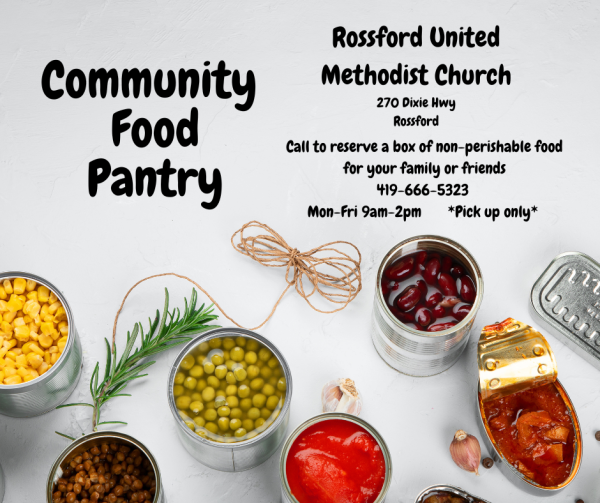
-

-
EVERYONE IS WELCOME HERE!
10:30 am Worship
-
-

-
-

-
Friday, July 18, 2025
Matthew 13: 33 (ESV)
He told them another parable. “The kingdom of heaven is like leaven that a woman took and hid in three measures of flour till it was all leavened.”
Positive and negative in the same moment. What did Jesus intend?
Even the smallest of his stories can carry immense meaning. One can look at the story of the leaven – a one-sentence story – in exactly that manner. Something very small can have great influence. On the positive side, even the smallest acts of kindness and love carry within themselves the possibility of changing the world. On the negative side, even the smallest accommodation to the presence of sin can destroy a world.
The scriptures pay close attention to the negative implications of the lesson.
Beware the yeast of the Pharisees, Sadducees, and Herod, Jesus told his disciples. Paul warned his Corinthian church that its prideful boasting was not good: “Do you not know that a little leaven leavens the whole lump? Cleanse out the old leaven that you may be a new lump, as you really are unleavened… Let us therefore celebrate the festival, not with the old leaven, the leaven of malice and evil, but with the unleavened bread of sincerity and truth.” (1 Cor. 5: 6-8) The ancient Hebrew scriptures celebrated the Passover with unleavened bread, for it considered such bread to be pure and holy. Leaven, they believed, carried life itself in the vegetable world, much as human blood carried life in the animal world. For that reason, it was never burned on an altar.
What, then, was Jesus saying? Was he telling his followers to embrace that which was unclean? If so, shocking. We must remember Jesus told his stories most often when challenged, in the wake of controversies with others. Rather than argue, he told stories.
“In this parable, an even more profound boundary is being challenged,” Thomas Keating wrote in his somewhat lengthy reflections on this sentence of scripture. "Can evil be good? Recalling Jesus’ custom of reaching out in table fellowship with the outcasts of society, the kingdom of God is revealed to be active in marginal people and in the marginalized. Where is the kingdom if it is not in the holy, the sacred, and the acceptable places? Jesus, by his example and preaching, says ‘Look for it in the most unexpected places.’” (Fr. Thomas Keating, Meditations on the Parables of Jesus, [New York: The Crossroad Publishing Co., Kindle edition], 21.)
Thus, a single-sentence story brings us back to the serious questions asked by Dietrich Bonhoeffer in his “Ethics.” Can we really distinguish between good and evil? Should we make that understanding the basis of all our actions?
Father Keating recalled a true story. A very prayerful acquaintance of his in California experienced terrible tragedy. Her only son was shot to death by a sociopath who wanted to kill someone just to experience absolute power for a moment. The murderer was convicted and imprisoned, and the mother found herself wrestling with all the questions humanity experiences in such moments. Why did God allow this to happen? Why didn’t God prevent it? Why my son? Is this a punishment for some sin I committed? Does God really love me?
After much prayer, she wrote to the murderer, asking to meet with him. No response for a year. Finally, he responded, but offered no sign of remorse. She wrote him back, again asking to meet with him. No response for a year. Finally, a note arrived, agreeing to the meeting. She went with a social worker to meet the murderer of her son. He spent most of the time in that meeting describing with little emotion the horrendous childhood he had suffered. He was an unwanted child. Physically and emotionally abused. As a consequence, he became antisocial.
“You cannot imagine the immense joy I felt when I stood over your son and realized I had killed him,” he said.
It was a moment of ultimate power.
The mother stood her ground, her forgiveness unshaken. The social worker was flabbergasted and wrote to her some time later, saying, “This man has started to change. He shows a little more courtesy and consideration for other inmates.”
The mother offered to return, and a lengthy process began. Exchanged letters. New visits. In her most recent visit, she hugged the man and noticed as she did it a tear in the corner of his eye. In a very real sense, she has become his mother, and he is becoming her son.
Where can we find the kingdom of God? In strange and awful places, perhaps.
Hymn of the day: Perhaps Love. Online at Rossford UMC - Media.
Rev. Lawrence Keeler
-
-
There is currently no news.
-
Sun Jul 20 · 9:15am Adult Bible Study Sun Jul 20 · 10:30am Sun Jul 20 · 11:30am Meets in the Parlor Thu Jul 24 · 7:30pm Sun Jul 27 · 9:15am Adult Bible Study Sun Jul 27 · 10:30am Sun Jul 27 · 11:30am Meets in the Parlor View Full Calendar
Jul 2025 29 30 01 02 03 04 05 06 07 08 09 10 11 12 13 14 15 16 17 18 19 20 21 22 23 24 25 26 27 28 29 30 31 01 02 -
• The Daily Examen Prayer (Nov 29, 2022)
• A Prayer to the Divine Provide... (Nov 28, 2022)
• The Way of the Exile (Aug 24, 2022)
• Psalm 90 NIV Audio Bible (Aug 23, 2022)
• Job: Part One (Aug 22, 2022)
-

